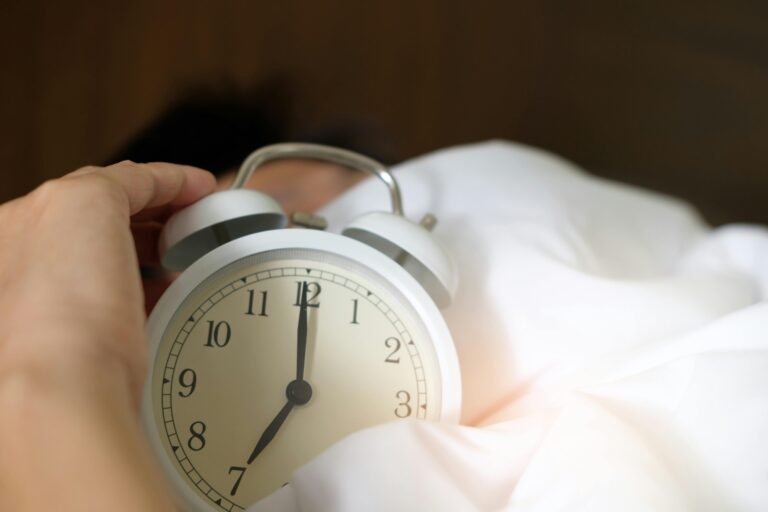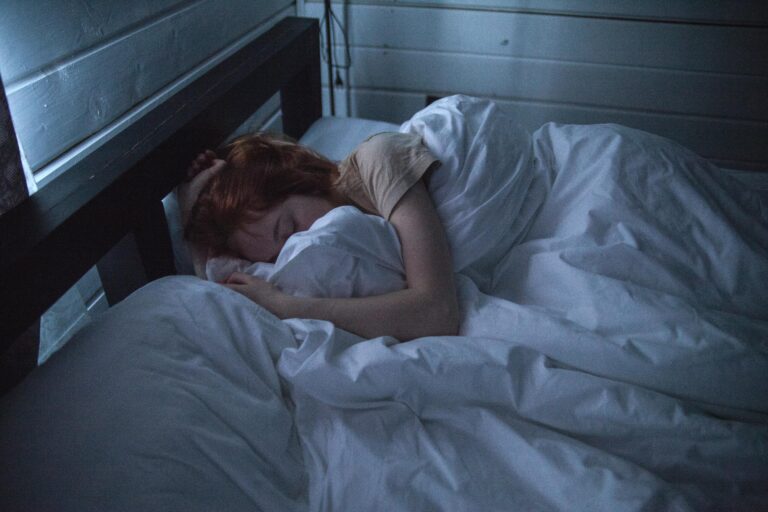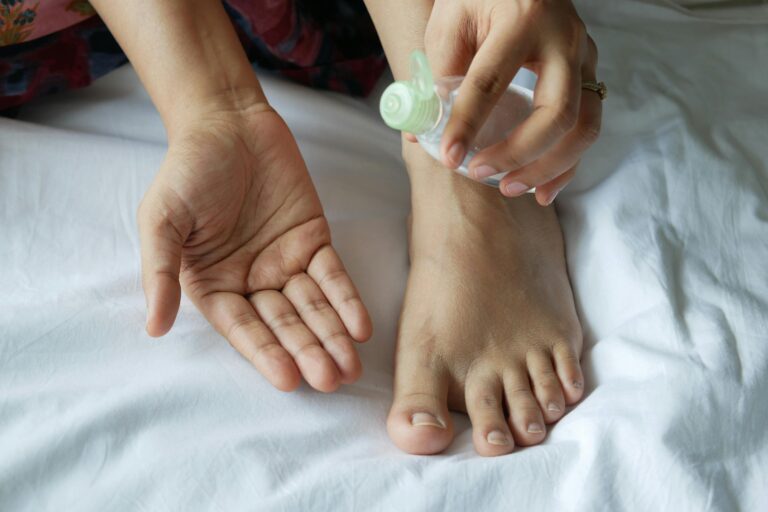
In the fast-paced world of today, one of the first things often sacrificed is quality sleep. However, quality sleep affects our physical health, our mental acuity, and our emotional health.
In the fast-paced world of today, one of the first things often sacrificed is quality sleep. However, quality sleep affects our physical health, our mental acuity, and our emotional health. Your energy levels, immune systems, and mood are all dependent on getting a good night’s sleep. However, the need for sleep varies from person to person. Most adults need 7-9 hours of sleep per night to achieve optimal performance. Probably, you are not an exception when it comes to bad sleep nights. Here are ten tips on how to sleep like a pro and wake up rested and refreshed for the day.
—
Regulation of the internal clock, that is, circadian rhythm, takes place at the same sleeping and wake times every day, regardless of whether on a workday or holiday. Such synchronization makes a person feel asleep and even wake easier than in one with regular schedules.
Recommendation: Set up a bedtime so that you would go to bed at least 7 hours before waking. You must try to sleep as soon as you set your sleeping hour, regardless of whether you feel it or not. Eventually, the body will start reacting, and you’ll begin sleeping like a baby.
—
2. Develop A Bedtime Routine That Would Calm Down Your Mind And Body
A relaxing bedtime routine sends signals to your body that it is time to wind down. Calming things can help you transition more readily from being awake to falling asleep.
TIP: Think about reading a book, listening to calming music, doing some light stretching, or practicing meditation or deep breathing. Avoid screens and other stimulating activities that tend to be harder for the brain to wind down to.
3. Minimize the Exposure to Blue Light at Night
Blue light-emitting devices such as smartphones, tablets, and computers interfere with the production of melatonin, a hormone controlling your sleep-wake cycle. Blue light sends the message to the brain that it is wake-up time, making it difficult to sleep.
Tip: Turn off screens an hour before bed. And if you need to use devices, wear a pair of blue light-filtering glasses or activate a device’s “night mode.”.
A quite cool room with dimmable lighting is more prone to telling the body about when to sleep. Switch your sleeping environment around a bit. That’s a change that would do any good to make your way sleep-friendly and calming place at nighttime.
Tip: Keep your room temperature at 60-67°F (15-19°C), put up blackout curtains that do not let light pass through, and use earplugs or a white noise machine to avoid distractions. Do not try to save money by wasting it on an ordinary mattress and pillows, because these things do make a difference in quality sleep.
Maybe it is just that what you eat in time to bed really matters with the quality of sleep to be achieved. Stimulants like caffeine and nicotine may make you sleep less and heavy meals or spicy food may cause discomforts and you are having difficulty sleeping afterwards.
Tip: Limit your caffeine intake at least six hours before bedtime. Avoid big meals in the last two hours of your sleeping period. If you are prepared to eat before bed, try a light snack, a banana, or a handful of nuts, full of nutrients that can help induce sleep.

—
6. Regular Physical Activity
Regular exercise increases the rate of falling asleep and quality sleep. Physical activity increases the duration spent in the deep stages of sleep, which is highly important for the restoration of the body and its cells. This fact has only one attached condition, which is time.
Trick: Vary your exercise routine, forcing yourself to collect at least 30 minutes of at least moderate-intensity activity most days of the week and do it a sufficient number of hours before you go to bed so the body isn’t worked into a frenzy that just causes it to have difficulty cooling down afterwards.
—
—
7. Reduce Stress and Anxiety
Stress and anxiety are probably the worst sleep thieves. If you are worrying your mind is going a mile a minute, you cannot keep it relaxed enough to fall asleep. Reducing stress and relaxation techniques help improve sleep.
Tip: Practice clearing or relaxation at night. You can do deep breathing, meditation, or journaling. Write down everything racing in your mind or all the things on your to-do list before you go to bed. This loosens the thoughts weighing upon you, so you can relax and clear your head.
—
—
8. Limit Daytime Napping
Power napping is refreshing, but a nap that’s too long or that occurs too close to bedtime can cut into the sleep drive in your body and make it harder to fall asleep at night. If you find that you are unable to fall asleep at night you might want to limit your daytime naps.
Tip: If you really need a nap, take it in 20-30 minutes lengths and nap in the afternoon. Naps taken at late afternoon or evening compromise your chances to fall asleep at night.
————————————————
9. Spend as Much Time as Possible during the Day in Natural Light
Exposure to daylight, especially during the morning when the day is approaching noon time, will help regulate your body’s internal clock through the establishment of a sleep-wake cycle. Thus, a person can experience improved secretion of melatonin during nighttime, which leads to more easily falling asleep.
Tip: Take a fresh air break each day. You may be able to spend just 15-20 minutes outdoors, but this is essential because nothing can beat natural sunlight penetration. For additional light, you may want to employ a light therapy box. This may be used for simulating morning sunlight as a means of improving the circadian rhythm.
—
10. Sleep Position Review and Change
Sleeping position has an influence on the quality, comfort, and even health. A poor sleeping position is quite likely to cause pains and aches or affect breathing hence has an influence on sleep quality.
Tip: Most individuals prefer to sleep in one of two positions-back and side. If you’re a back sleeper, the pillow or rolled-up towel placed under your knees will help you get an excellent curvature of your lower back. For side sleepers, placing a pillow between the knees may even help support hips and lower back better. In addition, for individuals who snore or suffer from apnea, sleeping on the side may bring benefits.
—
Bonus Tips for Good Sleep
And if even that is not enough for you, then here are a couple of bonus tips that might help you do even better:
- Avoid Alcohol Before Bed: Yes, alcohol makes you sleepy initially, but it ends up disrupting the sleep cycle and making you sleep less peacefully.
- Try Deep-Relaxation Breathing Techniques: This is the “4-7-8” technique, where you breathe in for 4 seconds, hold for 7, and breathe out for 8. This calms the body and will assist a person in sleeping.
Try Aromatherapy: There are certain smells known to promote relaxation, including lavender and chamomile. Try creating a calm scent for your bedroom by using a diffuser or pillow spray.
—
Quality sleep is rest, but much more significant in general health and well-being. The body heals its tissues in the deep sleep stages and secretes growth hormones to increase the memory. Poor sleep will make a person feel miserable with mood changes and impairment in cognitive abilities, while at the same time raising risks of obesity, heart diseases, and depression.
Sleep improves the following aspects:
Mental clarity and focus- Sleep helps revitalize brain activity for enhanced concentration, decision-making, and solving problems.
- Mood and Emotional Health: This sleep enhances emotional stability, reduces irritability, stress, and anxiety.
- Physical Health and Immune Function: It will also improve the immune system that fights diseases and infections.
- Metabolism and Weight Management: This would help regulate hormones controlling hunger and metabolism in your body, hence leading to proper weight management.
—
Conclusion
Sometimes, you may think that sleeping peacefully through the night sounds like a pipe dream. It sets up a sleeping routine in your life that works well for you. Consistency and commitment to healthy sleep habits are the only guarantee for quality sleep. Then find what works best and make some adjustments as required. After all, a peaceful sleep environment can be created only through patience and practice, positioning oneself toward restorative, high-quality rest.
All this amounts to controlling both your sleep environment and habits so that you can have greater physical health, mental clarity, and emotional well-being. Sleep tight!







